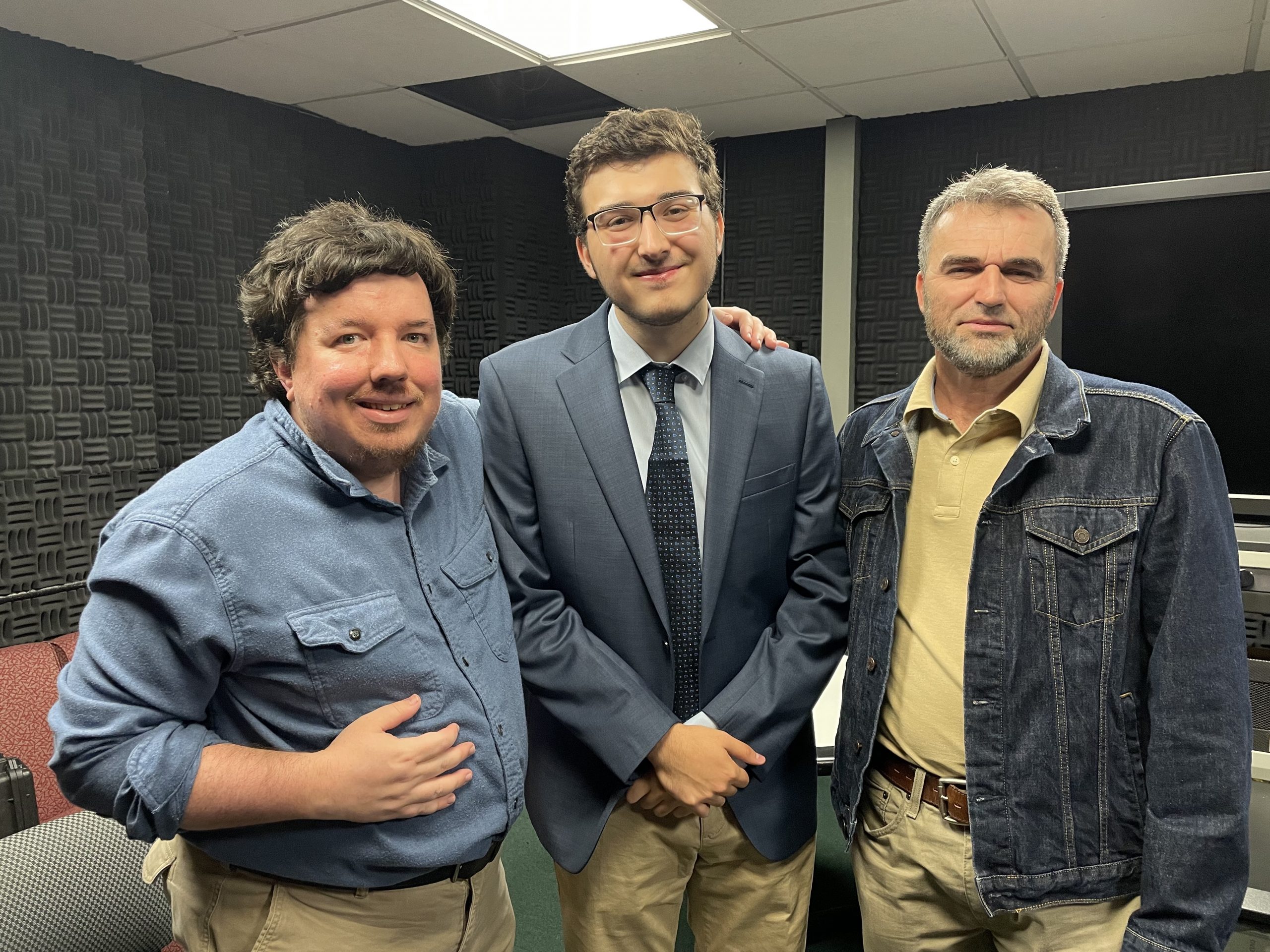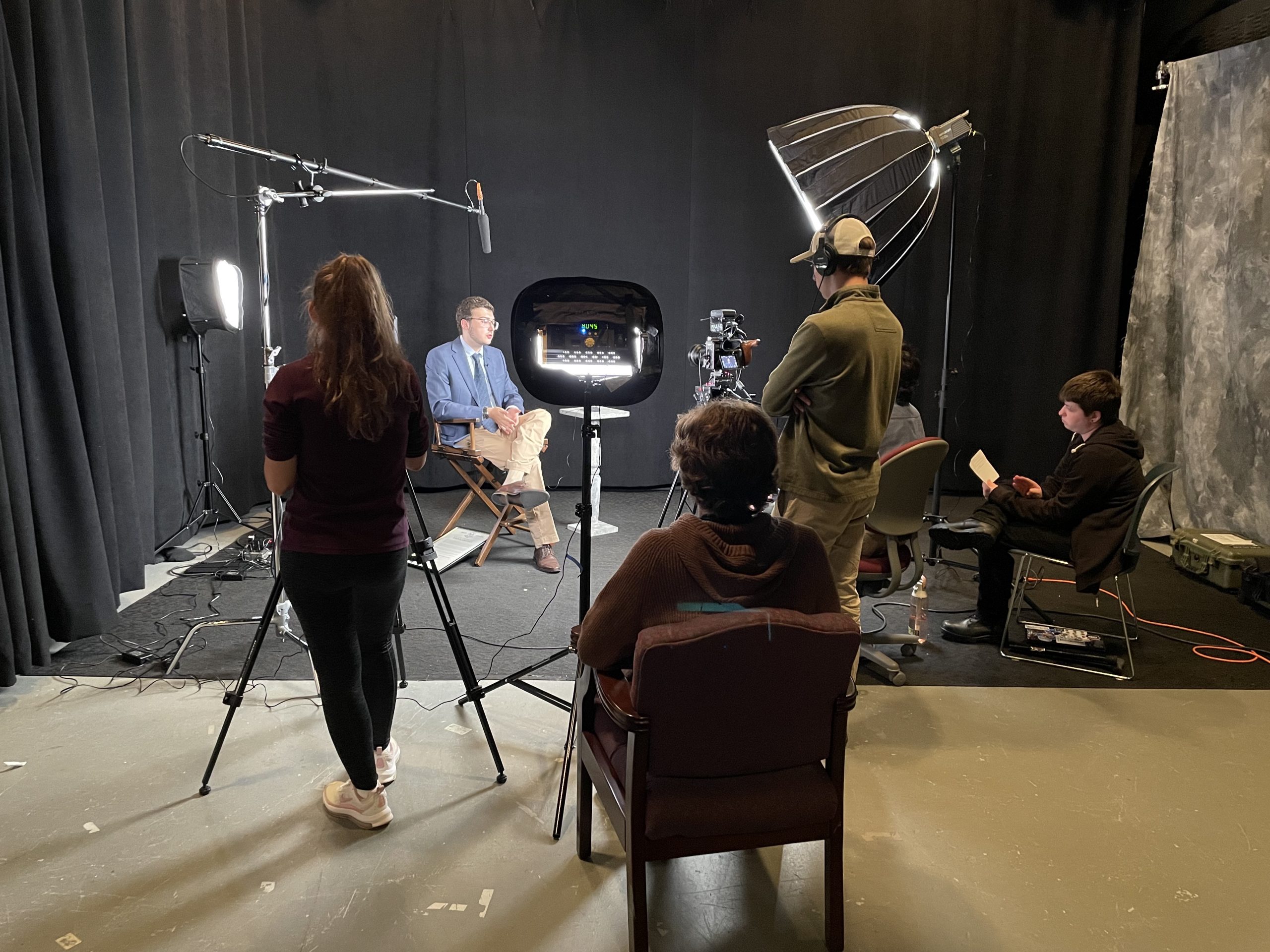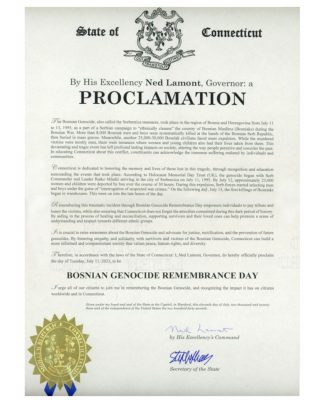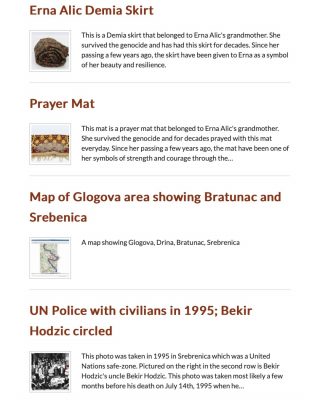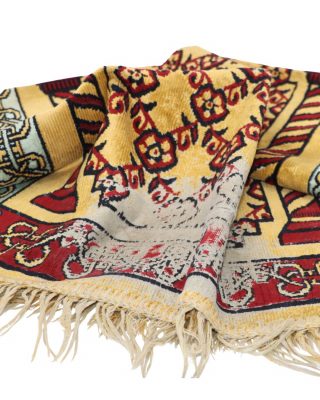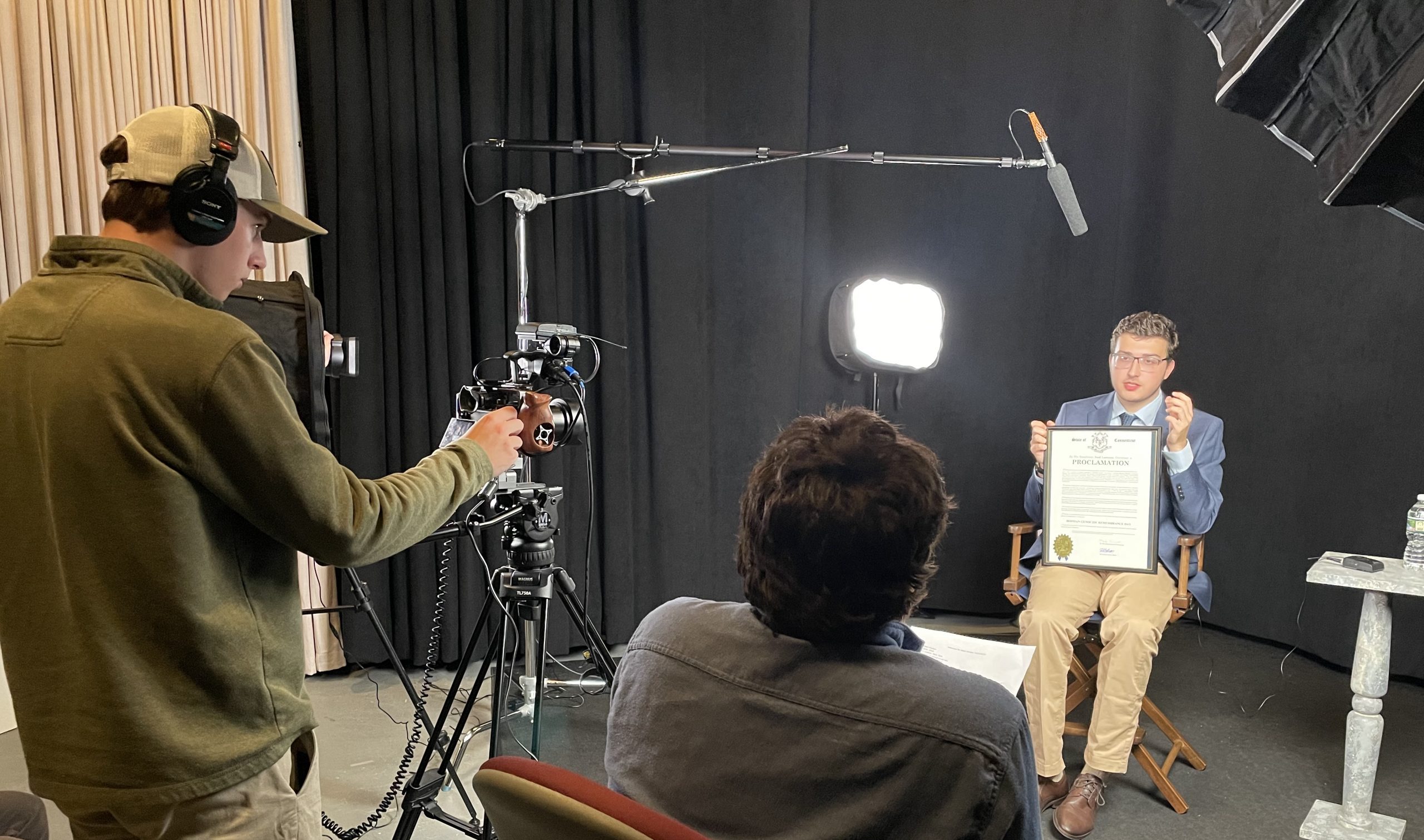
About the Courses
The University of Connecticut offers an innovative two-part course sequence focused on human rights archives and digital storytelling. Taught by internationally award-winning filmmaker Catherine Masud, these courses combine hands-on archival work with creative storytelling techniques. The sequence aims to document, preserve, and share community memories and histories, creating an important resource for ongoing scholarship while strengthening university-community relationships.
Human Rights Archives I and II
The University of Connecticut offers and innovative two-part course sequence focused on human rights archives and storytelling techniques. Currently the focus of the course sequence is the Bosnian Genocide (1992-95) and the subsequent international Criminal Tribunal for the Former Yugoslavia (ICTY). The courses are taught by Catherine Masud, an internationally award-winning filmmaker. In the first course, Human Rights Archives I: Documenting and Curating Community Memory, students learn essential skills in community outreach, documentation, and archival curation, including conducting oral history interviews, digitizing family artifacts, collecting digital objects, and building digital archives. The second part of the course sequence, Human Rights Archives II: Visual Storytelling Practices, builds on this foundation, exploring visual storytelling techniques that help students to develop their abilities in storytelling and scriptwriting, creating graphics and animations, and crafting compelling documentary narratives, using the archival collections built by students in Human Rights Archives I. Together, these courses provide students of human rights and digital media with practical skills in documenting, preserving, and sharing community memories and testimonies.
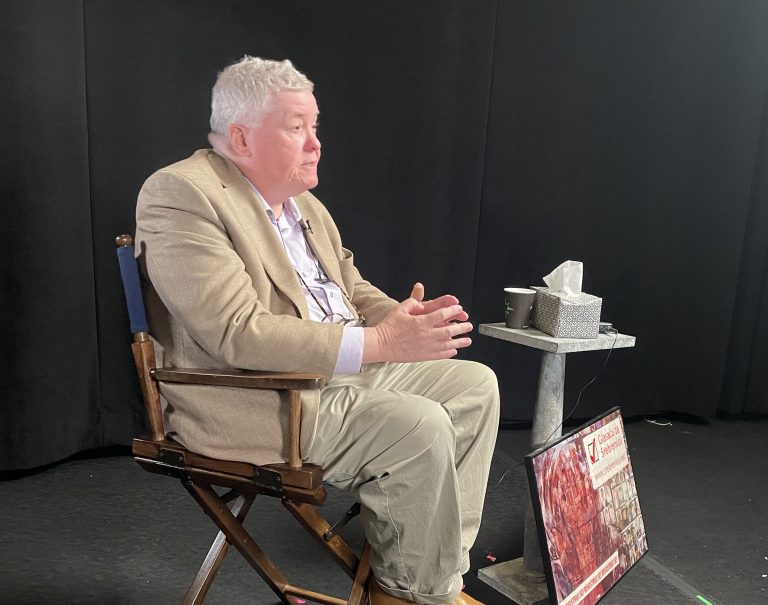
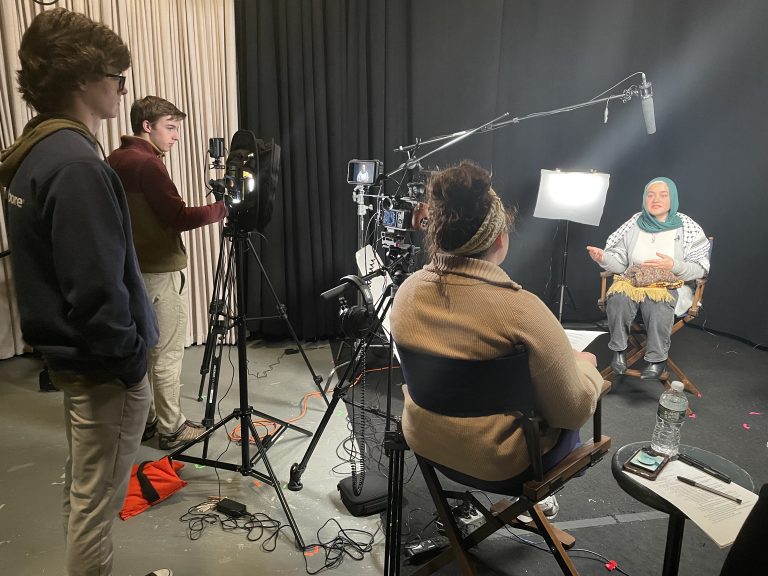
About the Instructor
Catherine Masud holds a joint appointment with the Department of Digital Media and Design within the School of Fine Arts and the Human Rights Institute at UConn. She is also an internationally award-winning filmmaker and spent much of her filmmaking career overseas, primarily in Bangladesh. Thematically, many of her films address economic and social justice issues, war and genocide, and the conflict between religious and cultural identity. Her first fiction feature, Matir Moina (The Clay Bird), which she produced, co-wrote, and edited, won the International Critics’ Prize at Cannes and became the first Bangladeshi film to compete in the Oscars. Her films have received support from such international grant-giving entities as the Ford Foundation, the Hubert Bals Fund, and the French Government South Fund, among others. Her latest film project is A Double Life, a documentary feature about a civil rights lawyer who spent 13 years on the run from the FBI. She also has a special research interest in the way human rights archives can be used in teaching and visual storytelling, and is currently completing a Digital Archives Specialist (DAS) Certificate from the Society of American Archivists. In addition to her teaching work, while at UConn Catherine has engaged in special documentary projects involving the University’s Thomas J. Dodd Nuremberg Collections, the Armenian Memory Project, and a tribute project on human rights scholar Wiktor Osiatyński. She holds an MFA in film from the Vermont College of Fine Arts and a BA in development studies from Brown University.
Academic Connections: Using the ICTY Records
The course sequence uses the public records of the International Criminal Tribunal for the former Yugoslavia (ICTY) as a primary resource. Students gain hands-on experience exploring and researching the Unified Court Records of the International Residual Mechanism for Criminal Tribunals (IRMCT).
Through this process, students develop skills in identifying crucial documents and visual media within these public records. The coursework then guides students in transforming these primary sources into persuasive secondary materials for creative visual projects. These projects uniquely blend personal, reflective oral history interviews that are conducted in Human Rights Archives I with contextual and historical facts, offering a varierty of perspectives on complex human rights issues. This approach not only enhances students' research and archival skills but also cultivates their ability to craft narratives that bridge personal experiences with broader historical events.
As part of the course sequence, students learn to create engaging online exhibits using Omeka, a web-publishing platform designed for displaying library, museum, archives, and scholarly collections. This hands-on experience allows students to curate digital narratives that integrate multiple sources, such as the collected materials from the oral history interviews conducted, and public records from the Unified Court Records. Students create thematic exhibits that weave together these diverse materials. They develop skills in digital curation, metadata management, and online storytelling.
Oral History and Community Memory
One central focus of the Human Rights Archives course sequence is the documentation of community memory through oral history testimonies which are conducted and filmed by the students. "Oral history" is a broader approach to interviewing which encompasses personal, family, and community memory, as a method of capturing a more holistic and interlinking tapestry of personal memory and community identity across generations. Through the framework of the course, students learn how to sensitively approach and build rapport with community members and practice "active listening" during the recorded oral history sessions, which follow many of the techniques developed by the USC/Shoah Foundation for their archive of survivor testimonies. Similar to Shoah, these oral history recordings are stored on a shared platform for incorporation into an online archive that will be accessible to both scholars and community members. Community members are also encouraged to bring in personal items/family artifacts which they can talk about in the sessions, and which are later linked to their testimonies in the archive.
You can explore some of the student-created Omeka exhibits below.
Student-Created Omeka Exhibits
Student-Created Short Film
Share Your Story: Join Our Community Oral History Project
We are looking for members of the Bosnian community to participate in visiting students and engaging with them through interviews and artifact sharing. The interviews and archival assets collected through this collaborative project will form the basis of an important new collection that students will be involved in processing, organizing, and cataloguing.
Participants can be interviewed in Bosnian, and other features include:
• Honorarium: Participants will receive a modest monetary honorarium.
• Translation: In-person interpretation during the interview and translated recording of the interview for future access will be provided.
• Transportation: Free parking will be offered for commuting participants, with possible transportation to the UConn Storrs campus provided.
If you are interested in learning more about how community members can share their stories with students and build on an archive of Bosnian memory, please contact either:
Catherine Masud: catherine.masud@uconn.edu
Bekir Hodzic: bhodzic@vassar.edu
Aida Gradascevic: aida.gradascevic@uconn.edu
To find out more, please refer to the information packet here.
